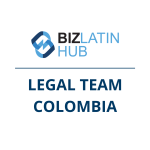The OECD states that “corporate vehicles are legal entities through which a wide variety of commercial activities are conducted and assets are held. They are the basis of most commercial and entrepreneurial activities in market-based economies. Corporate vehicles have become an integral and indispensable part of the modern global financial landscape and have contributed immensely to the prosperity and globalization that have occurred over the last half-century. Today, the rapid flows of private capital, ideas, technology, and goods and services involve corporate vehicles at virtually every level”.
Corporate vehicles for investment help to deliver businesses to markets, and Colombia is no exception. Amidst recent government pushes to rejuvenate its oil and gas industry, we explore ways for keen investors to dive into the market.
Oil and Gas Colombia – How to incorporate a foreign company in Colombia

The Colombian Commercial Code under articles 469-497 establishes the rules that apply to foreign companies wishing to carry out permanent business in Colombia.
A foreign company can establish a branch domiciled in the country, provided it complies with a list of requirements that the commercial code indicates.
Among the activities that the commercial code defines as permanent, it includes dedication to the extractive industry in its fields or services.
Therefore, foreign companies wishing to carry out activities related to the extractive industry, such as the petroleum industry, must establish a branch in Colombia.
Foreign oil company incorporation in Colombia
Colombia demonstrates a long-established legislative position on nonrenewable resources, dating back to the 1800s. For petroleum specifically, the legislation became quite relevant during the first years of the 1900s, when the first concession agreements known as the de Mares and Barco concessions for petroleum exploration were granted by the Colombian government to certain individuals.
The law’s significance increased in throughout 1930-50s due in part to the presence of foreign companies wishing to explore and carry out related activities.
As a result of a series of scattered petroleum norms and regulations issued during the first 40 years of the twentieth century, the Colombian Congress issued Law 18, 1952 authorizing the government to prepare and compile a code with the legal and regulatory provisions on petroleum.
In 1948, the Empresa Colombiana de Petróleos, ECOPETROL, was created with the main purpose of administrating the Mares Concession – the first contract for exploration of oil granted to a private person. This concession – and the corresponding production field – was now being reverted back to the government. At the time ECOPETROL was a national state oil company. It made sense to compile the norms into one sole code.
Petroleum Code

Pursuant to Law 18, 1952 the Colombian government issued the Petroleum Code (Decree 1056, 1953). This code contains important pillars and principles of local petroleum legislation. It includes relevant norms regarding the upstream, midstream and downstream activities. Many of its norms remain in force, although certain aspects have been updated from time to time.
Article 10 of the Petroleum Code states how foreign companies abroad wishing to execute petroleum contracts with the Colombian government should enter into the country.
It determines that foreign companies wishing to carry out permanent business in Colombia shall establish a branch domiciled in Bogotá, the country’s capital city, following the requirements outlined in article 470 of the commercial code.
Article 10 of the Petroleum Code expressly states the branch shall establish and have a domicile in Bogotá. This is interesting because unlike the requirements for other corporate options, this one is geographically restrictive.
Such a branch will be considered Colombian for national and international effects, with these contracts and to the goods, rights, and shares which fall upon them.
Law 10, 1961 also outlines the legislative framework on petroleum. In article 3, it defines that foreign companies in the petroleum sector that execute service contracts in Colombia with the government or with private persons, such as drilling or connected services, or geological and geophysical studies among others should also comply with Article 10 of the Colombian petroleum code.
Helpful business structure types for petroleum company incorporation
It is worth mentioning that Law 1258, 2008 created the Simplified Share Company, with Spanish acronym SAS.
Such a corporate vehicle has become an interesting option for foreign and local investors because it is flexible in its structure, management, operation and controls. However, there is another option, which is to open a foreign branch office in the country. Many businesses looking to expand into Colombia tend to consider either the SAS or foreign branch office for their legal entity of choice.
Colombian SAS and foreign branch office business structures
Two aspects are worth mentioning concerning a preferable corporate vehicle. The first relates to the liability in each structure.
A branch office is not considered a separate legal entity from its parent company. It is defined as a commercial establishment. The foreign parent company remains directly liable for all local activities; the branch and its parent are jointly liable.
In the SAS, mentioned above, the corporation formed is a new and different company, so both the foreign company and the SAS are liable for their own activities.
Colombian exchange regime

The second key aspect relates to the Colombian exchange regime.
The exceptional treatment granted to branches of foreign oil and gas companies established in Colombia, in regards to the handling of their funds, is known as the special exchange regime. This may pose certain advantages to foreign investors.
Colombia has an exchange market that channels all funds from foreign operations received from foreign companies into Colombia through the foreign exchange market (i.e. banks registered with the Colombian Central Bank). As a general rule, Colombian entities are paid in Colombian pesos – this is known as the general exchange regime.
However, such rule has its exceptions, and the hydrocarbon sector is one of them. This sector is subject to the regulations defined by the Board of Director of the central Bank. Although this sector has a restriction to access the foreign exchange market under Colombian law, branches of foreign companies carrying out oil and gas exploration and production activities, or rendering services inherent to the hydrocarbon sector in an exclusive manner, are not obliged to reinstate the funds received from their sales (exports) in a foreign currency. Companies that belong to the special regime can make and receive payments in a foreign currency. (Law 9 of 1991 and Decree 2058 of 1991 issued by the Ministry of Mines and Energy).
Branches of foreign companies carrying out oil and gas exploration and production activities may resign to the special regime for a term of 10 years.
Colombia’s National Constitution supports foreign investment
Colombia’s National Constitution (NC) is the supreme law of the country. As such, the NC supports foreign investment based on principles of equality, free enterprise, and private property.
Rights and property
Article 100 of the NC grants foreigners residing in Colombia the same civil rights and guarantees as those granted to Colombian citizens. Note that the law may, for reasons of public order, impose special conditions on or nullify the exercise of specific civil rights by foreigners.
Article 58 of the NC guarantees private property rights, but public utility or social interest shall prevail over the rights of individuals in the event of a conflict. The State protects and promotes associative and joint forms of property.
Article 58 also allows expropriation – the seizure of land by the government – for reasons of public utility or social interest defined by the legislature, subject to a judicial decision and prior compensation.
Economic activity
Article 333 of the NC states that economic activity and private initiative are free, within the limits of the common good. The State sponsors business development. It shall also prevent the obstruction or restriction of economic freedom or any form of abuse that persons or businesses make of their dominant market position.
Article 334 of the NC grants the State the economy’s general direction. The State will intervene, by law, in the exploration of natural resources; use of the land; production, distribution, utilization, and consumption of goods; and public and private services to manage the economy to achieve an improved quality of life for its citizens, the equitable distribution of opportunities, and the benefits of the development and preservation of a healthy environment.
Take advantage of investment incentives

The Colombia government is making an effort to revive its oil and gas industry, and certain regulatory incentives and readily available legal entities support this push. Foreign businesses looking at investing in the sector can enjoy government backing in an industry that is set to receive nearly US$5 billion in public investment over the next year.
Several underexplored opportunities exist non-conventional reserves and offshore areas. . The country also offers over 15 sedimentary basins of prime potential for explorers. Consider as well how technological advances in this and the adjacent mining industry could improve the country’s peripheral services in these fields.
Contact Biz Latin Hub to get started
The oil and gas industry in Colombia is on track for commercial rejuvenation. This and the connected mining industry present viable commercial opportunities for foreign investors and exploration businesses in Colombia and the wider region.
The government’s strong will to support this sector, along with its pro-business outlook is luring foreign commercial actors to its developing and undiscovered sectors. Nevertheless, expanding to Colombia requires an understanding of local regulations.
It’s important to seek local support and expertise in the incorporation and expansion phase. Our team at Biz Latin Hub provides expert knowledge and local experience in Colombia to ensure this process is a smooth one for your company. Our suite of market entry and back-office services are customized specifically to your business needs.
Reach out to our friendly Colombia team here at Biz Latin Hub today to get started.




